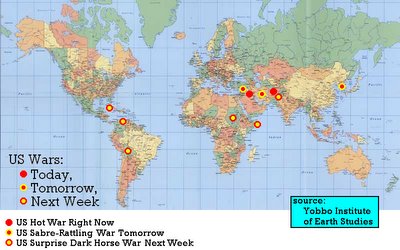
Don't click.
I'm sorry. This is the second day in a row this image has appeared on a website I visit regularly, and it keeps grabbing my eyeballs.
What is it? What isn't it? What do you think it is? Am I the only one who thinks it's disorienting?
News, Global Warming, Mozart, Sports, Intergalactic Travel, sausages, VOLCANOS!!! opera, PIRATES!!! Filth in Extinct Lingos, Big Integers & BOINC. Remarkable Older Stuph: http://vleeptron.blogspot.com



e-mail received this date
is it porn? is it Internet medicine? a hot stock tip? Asian political controversy? offer to be the silent partner and get a hefty cut of $2,300,000?
you tell me. 2 slices pizza, extra garlic & onion. answer must include alphabet/language.
***********************
ข้อมูลรายชื่ออีเมล์กว่า 1,000,000 เมลล์ สั่งซื้อวันนี้แถมฟรี 100,000 เมลล์และโปรแกรมส่งอีเมลล์
>> ข้อมูลรายชื่อ email address (1,000,000 email) สําหรับธุรกิจ Update ใหม่ล่าสุด
| Detail , Information: | |
| หัวเรื่อง : | ข้อมูลรายชื่ออีเมล์กว่า 1,000,000 เมลล์ สั่งซื้อวันนี้แถมฟรี 100,000 เมลล์และโปรแกรมส่งอีเมลล์ |
| ธุรกิจประภท : | ผู้ทําธุรกิจทุกแขนง E- Marketong ,ร้านค้า ,ผู้ประกอบการทุกท่าน ,SMEผู้ทําตลาดทาง E- commerce สร้างฐานลูกค้าระยะยาว ,หาตลาดใหม่ผ่านทางอีเมลล์ |
| สินค้าแถมฟรี: | - สั่งซื้อวันนี้แถมฟรี 100,000 เมลล์และโปรแกรมส่งอีเมลล์ - สามารถส่งได้ชั่วโมงละ มากกว่า 3,000 อีเมลล์ |
| การสั่งซื้อสินค้า: | โอนผ่านบัญชีธนาคาร สินค้าจัดส่งทางไปรษณีย์ภายใน 2 วัน ,หรือรับบริการทางอีเมลล์ไม่เกิน 2 -3 ชั่วโมง |
ด้วยข้อมูลรายชื่ออีเมล์ที่คัดสรรกว่า 1 ล้านเมลล์ อัพเดทข้อมูลใหม่ล่าสุด อีเมล์เป็นของคนไทย คัดสรรข้อมูล พร้อมใช้งาน ไม่ซํ้ากัน พร้อม ทําตลาด Email Marketingของคุณ ทุกกลุ่มทุกแขนง,ทุกธุรกิจ ไปยังกลุ่มเป้าหมาย เหมาะสําหรับ ผู้ทําธุรกิจทุกแขนง ,ร้านค้า ,ผู้ประกอบการทุกท่าน ,SMEผู้ทําตลาดทาง E- commerce ,สร้างฐานลูกค้าระยะยาว
- สําหรับธุรกิจ E-commerce ,หาลูกค้าอีเมลล์ , ประชาสัมพันธ์เว็บไซด์
- เผยแพร่ประชาสัมพันธ์เว็บไซต์ทางอีเมลล์
- ส่งข่าวสารแนะนําสินค้า-เพิ่มลูกค้าไปยังลูกค้าทางอีเมลล์
- ทําการตลาด E-commerce ,หาตลาดใหม่ผ่านทางอีเมลล์
- OTOP , SME ,ผู้ทำธุรกิจงานต่างๆ
- ธุรกิจท่องเที่ยว ,อุตสาหกรรม
- และยังมีประโยชน์อีกมากมายตามการใช้งานของท่าน
- เจ้าของธุรกิจที่ต้องการ Email Address เยอะๆ ไว้โฆษณาสินค้า
- Email Marketing
หาตลาดใหม่ผ่านทางอีเมลล์ ,เพิ่มลูกค้าของธุรกิจท่าน
ราคา 350 บาท (สินค้าจัดส่งโดย EMS ภายใน 2 วัน)
Please : emailpost@chaiyo.com
สอบถามสินค้า (สั่งสินค้า) โทร. 037097375 คุณนัฐพงษ์
โอนผ่านบัญชีธนาคาร , สินค้าจัดส่งทางไปรษณีย์ภายใน 2 วัน
>> ขออภัยหากอีเมลล์นี้ท่านได้รับแล้ว หรือเป็นการรบกวนท่านเป็นอย่างสูง.
จากงานวิจัย ความรู้ E-mail marketing ได้รับผลสําเร็จแล้วในประเทศไทย
จากงานวิจัยชิ้นหนึ่งพบว่า :การตลาดโดยอีเมล์หรือ E-mail marketingที่กำลังได้รับความนิยมอย่างสูงในวงการ E-commerce ของประเทศไทย ไม่ว่าคุณจะประกอบธุรกิจขนาดเล็ก, ขนาดกลาง หรือขนาดใหญ่ก็สามารถใช้การโฆษณาโดยอีเมล์ได้ทั้งนั้นเพื่อก้าวไปสู่การเป็นผู้นำทางธุรกิจหรือการค้าที่ประสบความสำเร็จของคุณเอง จากที่ได้ทำการสำรวจพบว่าการใช้การโฆษณา โดยอีเมลล์ให้ผลสำเร็จ 1-2 % ซึ่งนั่นฟังดูไม่มากนัก แต่ 1-2 % ของ 30,000 คือลูกค้า 300-600 ราย ซึ่งนั่นหมายความว่าการทำโฆษณาโดยวิธีนี้ให้ผล นอกจากนั้นคนในประเทศไทยยังให้การตอบรับจากการโฆษณาชนิดนี้มากกว่า การทําตลาดแบบอื่นนั่นคือการทําตลาดด้วยอีเมลล์นั่นเอง !
ข้อมูลรายชื่อ email address (1,000,000 email) สําหรับธุรกิจ

